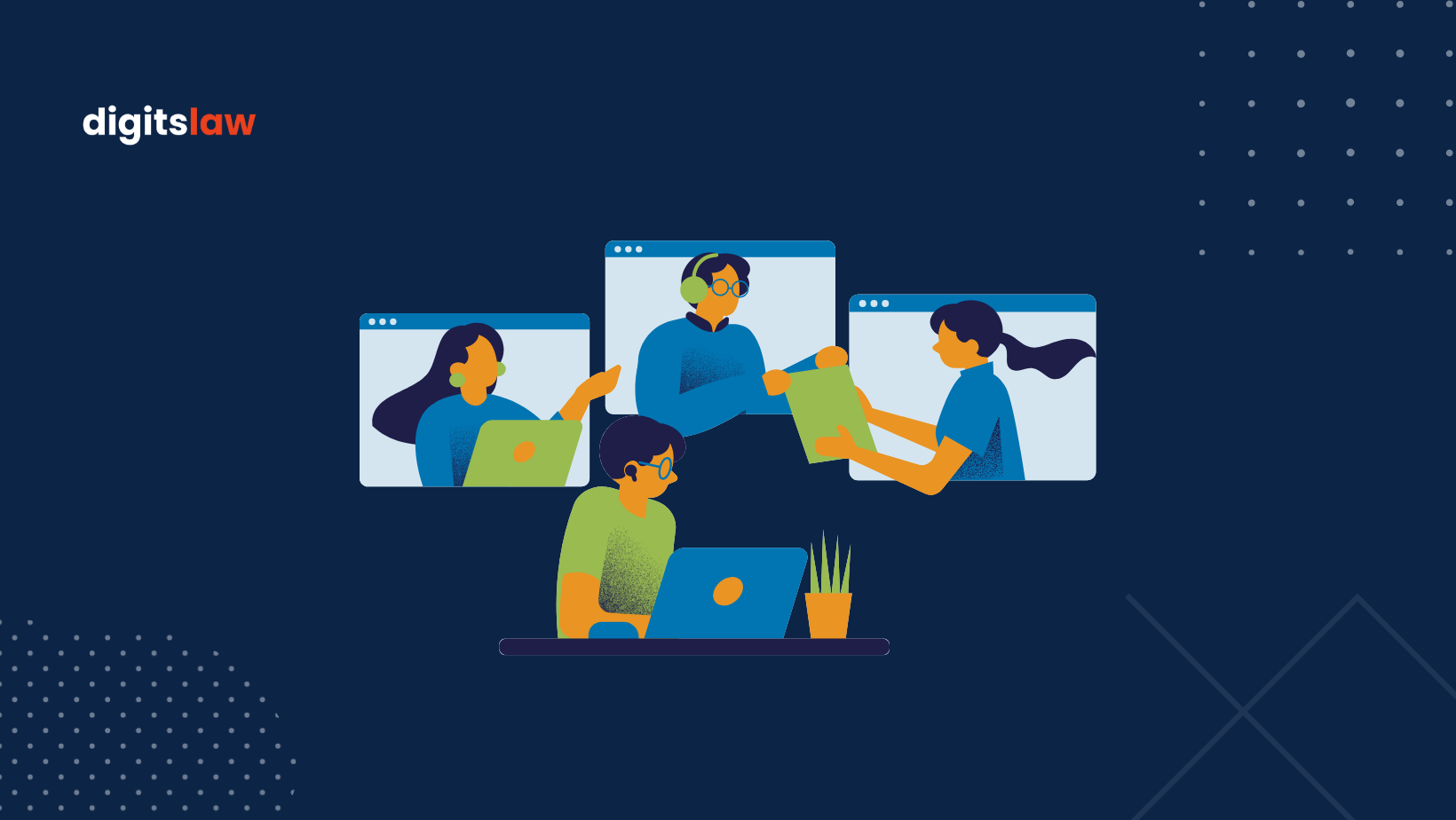Before technology, a lawyer’s life was quite different from what it is today. Law practice was a more manual and time-consuming process, with less access to information and resources.
Attorneys had to spend hours in libraries and archives to conduct legal research.
They had to communicate with clients, colleagues, and courts through traditional mail, phone, and in-person meetings which was a time-consuming and less efficient process of working.
Lawyers had to keep track of their cases manually, using paper-based filing systems. This was a cumbersome process that required a lot of physical space and time to organise and manage.
Thankfully, all that has changed in today’s digital age where technology has transformed the legal industry. Lawyers now use a range of legal software to streamline their work processes, improve efficiency, and enhance client experience.
Software for lawyers and law firms are designed specifically to help them manage their practice, documents, and clients. In this article, we will explore the different types of legal software used by lawyers, their benefits, challenges and the best recommendations on the market that can streamline your processes more efficiently.
What is a Legal Software?
This is a broad name for any type of software for lawyers that makes their jobs easier. Legal software refers to a set of computer programs and applications specifically designed to assist lawyers and legal professionals in their daily work. This software can be used to manage and streamline various aspects of legal practice, including case management, document preparation, research, billing, and accounting.
Types of Legal Software
There are different types of software for lawyers, each fulfilling single or multiple functionalities to enhance work productivity. Here are some of the most common ones.
Case Management Software
Case management software is designed to digitise one of the biggest aspects of a lawyer’s career – managing cases. It is one of the most common types of legal software used by attorneys and legal professionals. It is designed to help lawyers manage their cases, keep track of deadlines and appointments, and generally stay organised without missing a beat.
Digitslaw is a great example of a case management software
Here are some common features found in a case management software:
- Centralised case information: Lawyers can keep all information about a case in one place with the help of case management software. This includes details about clients, case documents, court documents, and records of communication.
- Task Management: Lawyers can make and give tasks related to a specific case with the help of case management software. This can include things like writing a formal document, setting up a meeting with a client, or researching the law. The software can also send alerts and reminders to make sure jobs get done on time.
- Time and Billing Tracking: Lawyers can use case management software to keep track of their costs and billable hours. This can include the amount of time spent on billable activities, the money spent, and the fees charged. This software can make invoices and reports that can help make billing and accounting easier.
- Contact management: Lawyers can keep track of all contact about a single case with a legal case management software. This can be done through text texts, emails, and phone calls. The software can also keep a record of every contact and put it in the case file.
- Reports and data analysis: Case management software can make reports and data analyses about a specific case or the law firm as a whole. This can include things like financial reports, reports on the status of a case, and measures of success.
Document Management Software
Next on the list is document management software. This helps lawyers manage and store their legal documents electronically. It provides features like version control, document sharing, and secure storage.
Here are some key features common to a document management software for lawyers:
- Centralized Storage: Document management software for lawyers allows all documents related to a specific case to be stored in one centralized location. This makes it easy for anyone to login and gain access to documents quickly.
- Collaboration: Multiple users can easily work on the same document at the same time, making it easier for lawyers to collaborate on cases.
- Version Control: All changes made to a document are tracked, and different versions of the document are stored. This makes it easy to keep track of the changes made to a document and to revert to an earlier version if necessary.
- Security: This software for law firms also includes advanced security features to ensure that confidential client information is protected. It enables law firms to control access to documents and set up permissions so that only authorised users can view and edit documents.
- Search: Documents can quickly and easily be searched for using keywords or metadata. This saves time and makes it easier to find the relevant documents when they are needed.
Accounting Software
Legal accounting is a crucial part of any law firm’s daily activity as such, it is important to have accounting software that lawyers can use to streamline their accounting needs.
Features like invoicing, payment processing, and accounting are common with a legal accounting software.
Here are some common features of accounting software for lawyers.
- Time and Expense Tracking: Lawyers can track their billable hours and expenses related to specific clients and cases. This makes it easier to generate accurate invoices and ensure that all billable time and expenses are accounted for in financial statements.
- Trust Accounting: Trust accounting is an essential feature of accounting software for lawyers, as it allows law firms to manage client trust accounts, which are accounts that hold funds on behalf of clients. Trust accounting software ensures that trust account transactions are properly recorded, tracked, and reported in compliance with regulatory requirements.
- Invoicing and Billing: It simplifies the billing process by generating invoices automatically based on time and expense data entered into the system. It can also track payments and generate reports to help firms stay on top of outstanding balances.
- Reporting: It provides a range of reports that can help firms track their financial performance and make informed business decisions. Examples of reports that may be available include profit and loss statements, balance sheets, cash flow statements, and client activity reports.
- Integration: Accounting software for lawyers may integrate with other software tools commonly used by law firms, such as case management software and document management software. This integration can streamline workflows and reduce the need for manual data entry.
A pro tip when choosing any type of legal software is to select one that provides as many functions as possible to streamline your work processes. For instance,
Digitslaw offers case management, document management, trust accounting, client management and accounting features in a single software. That way, you integrate your entire work in a single dashboard.
What are the benefits of using Legal Software
- Increased efficiency: Legal software automates chores that used to be done by hand, so they take less time and effort to do. This makes lawyers more efficient and lets them focus on more important jobs, like talking to clients and analysing the law.
- Better Collaboration: Legal software makes it easier for lawyers to work together with their peers, clients, and other people. This makes it easier to share information and papers securely and makes it easier to communicate.
- Better Client Management: Legal software has features like client portal and case management tools that make it easier for lawyers to keep track of their clients and cases. This makes the client’s experience better and helps the lawyer do a better job.
- Better Data Security: Legal software can store data safely and encrypt it, making sure that sensitive client information is safe from online threats.
- Cost Savings: Lawyers spend less time and money on paper-based processes when they use legal tools. It also streamlines the billing and invoicing process, making it easier to handle money and taking less time.
Challenges of Using Legal Software
- Cost: Legal software can be pricey, especially for small law companies and solo practitioners. It may also need ongoing fees for help and maintenance.
- Training and Implementation: It takes time and work to train staff on how to use legal software and to add it to existing processes. Some law companies may find this hard to do.
- Integration with existing Systems: Some legal software may not work well with systems that are already in place, which can cause data gaps and waste time. It’s important to find a software that is compatible and offers integrations with external workflow tools.
- Concerns about data privacy and security: Since legal software saves private information about clients, it can be a target for cyber threats. Law companies need to make sure that their legal software is safe and follows the rules about data privacy.
Final Thoughts
Legal software has transformed the legal industry, providing lawyers with tools to manage their practice, documents, and clients more efficiently.
By automating manual tasks with a case management and accounting software like Digitslaw, you can improve collaboration, and enhance data security.








